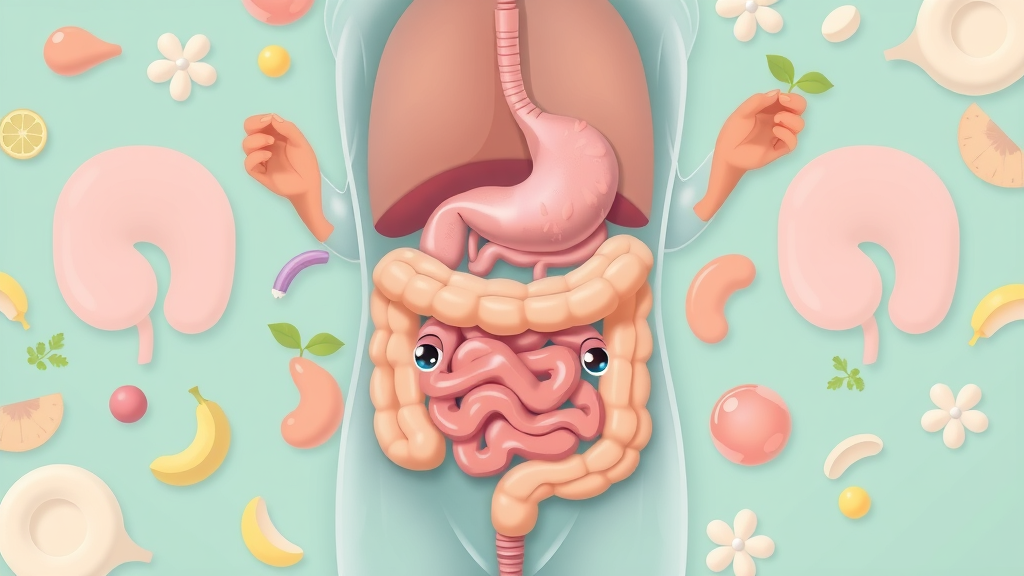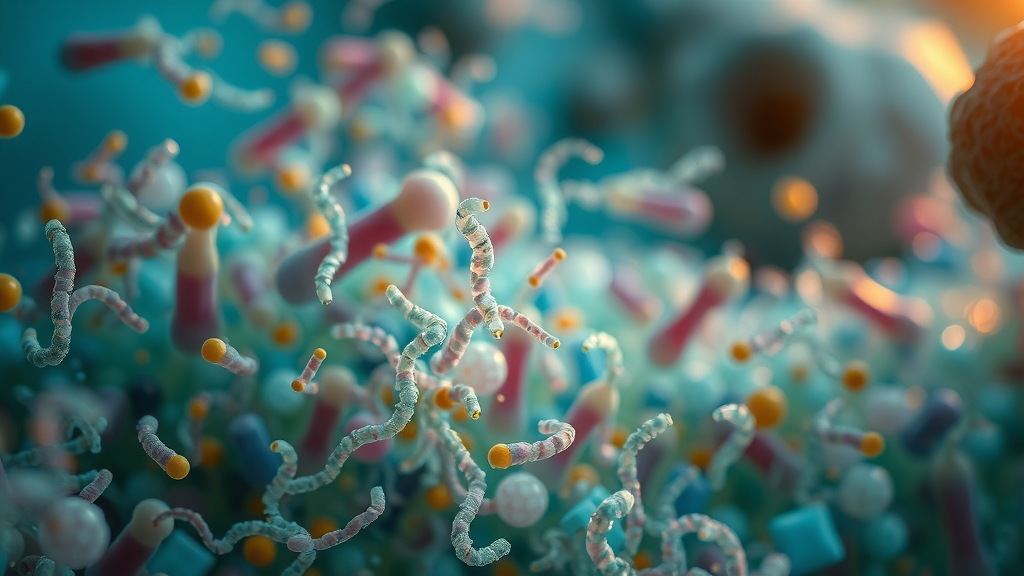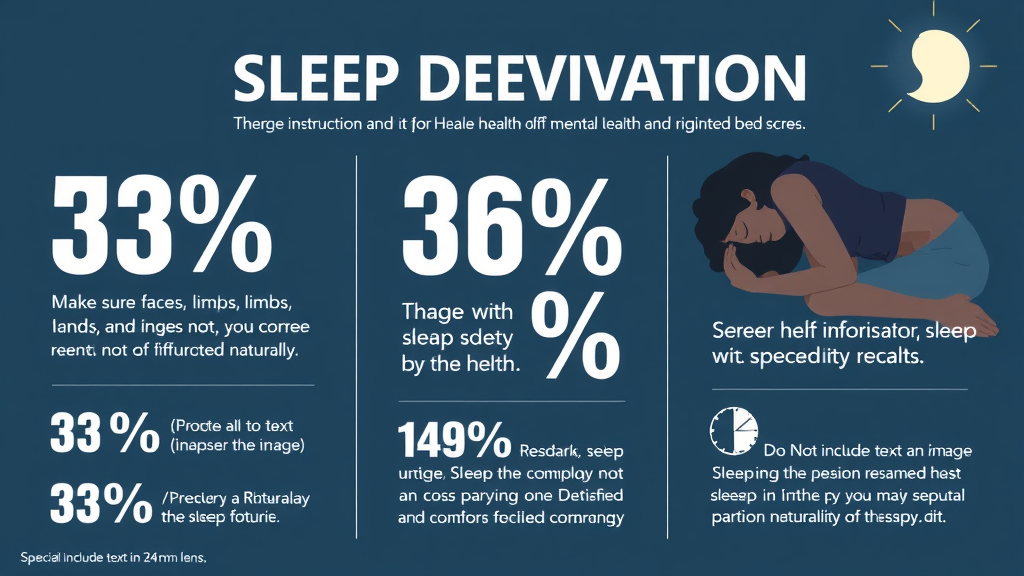- Did you know that over 70% of your immune system resides in your gut? Poor gut health has been linked to everything from mood swings to chronic disease. Understanding your gut health is the key to unlocking a healthier, happier life—let’s explore the science and real solutions behind improving your gut health.

Few things impact your overall health as much as the well-being of your gut. From unexpected mood swings and constant fatigue to immune issues and persistent digestive problems, your gut health is often the root cause of countless health concerns. Poor gut health is increasingly recognized as a driving force behind everything from inflammation to weight gain and even mental fog. In this comprehensive guide, you'll learn how your gut influences all aspects of your health, what signs signal something is wrong, and, most importantly, proven ways to restore your gut for vibrant, lasting well-being. Whether you're hoping to maintain a healthy gut or overcome years of digestive system challenges, this is the fix you need.
Why Gut Health Is Essential for Your Overall Wellbeing
The importance of gut health goes far beyond simple digestion—your gut is a cornerstone of your entire body's health. The digestive system is responsible for breaking down the food you eat, absorbing nutrients, and eliminating waste, but it also actively communicates with your immune system , hormones, and even your brain. With over 100 trillion microbes residing in your intestinal tract , the gut acts as an internal ecosystem, influencing everything from energy production to inflammation levels. Compromised or unhealthy gut can lead to a cascade of issues: irregularity, skin flare-ups, weakened immunity, and even mood swings.
Studies consistently show that maintaining a healthy gut microbiome not only helps ward off digestive issues but can prevent the development of autoimmune problems and chronic diseases. A balanced gut supports your body's resilience, allowing it to fend off pathogens and facilitate repair. Conversely, poor gut health can promote the growth of harmful bacteria and provoke an overactive immune response, setting the stage for everything from allergies to mental health disturbances. Clearly, nurturing your gut isn't just about comfort—it's about optimizing your entire physiological system for well-being.
The Critical Role of Gut Health in Your Digestive System and Beyond
The digestive system is marvelously complex. It consists of various organs, including the mouth, esophagus, stomach , small intestine , large intestine , and more, all working harmoniously to process nutrients. But its influence stretches far beyond nutrient absorption. A healthy gut is lined with protective cells and populated with countless species of beneficial bacteria that aid digestion, regulate metabolism, and shape immune responses.
Disruptions within this system can result in nutrient malabsorption, increased inflammation, and even susceptibility to bowel disease . The gut’s communication with the nervous system —known as the gut-brain axis—means that what happens in your gastrointestinal tract can directly impact your cognition, focus, and emotional state. That’s why many experts now call the gut our “second brain,” highlighting its profound influence over mood and mental clarity. Safeguarding your digestive system is essential for a happier mind and body.
How Gut Microbiome and Gut Microbiota Influence Your Health
Your gut microbiome is a living colony made up of trillions of gut microbiota , including countless species of bacteria, fungi, and even viruses. These organisms interact continuously with your body's systems and collectively define the state of your gut health. When balanced, they help digest food, produce vitamins, and protect against harmful invaders. If this balance tips in favor of harmful bacteria in your gut , inflammation and poor digestion occur, marking the onset of unhealthy gut symptoms.
The diversity of gut bacteria is crucial: the greater the variety, the more resilient your gut will be. This diversity is influenced by your diet, lifestyle, antibiotic use, and stress levels. Recent research connects robust gut microbiota with everything from a stronger immune system to improved skin health, balanced metabolism, and even decreased risk for conditions like inflammatory bowel disease and irritable bowel syndrome . Understanding this intricate ecosystem is key to unlocking vibrant health.
- Boosts immunity
- Regulates metabolism
- Impacts mental health
- Influences skin health
- Reduces the risk of chronic diseases

Understanding the Gut Microbiome: Nature’s Inner Ecosystem
The gut microbiome refers to the community of microbes living within your gastrointestinal tract. This community includes not only good bacteria , but also fungi, viruses, and archaea that coexist to keep your gut—and entire body—functioning optimally. Each person’s microbiome is unique, influenced by genetics, birth method, diet, antibiotic use, and more.
A healthy gut microbiome performs a range of life-supporting functions: it helps break down complex carbohydrates, synthesizes essential vitamins (like B12 and K), releases anti-inflammatory compounds, and maintains the integrity of your gut lining. Imbalances, often called dysbiosis, can result in digestive health issues, increased susceptibility to illness, and even chronic inflammation throughout the body. Recognizing the value of a stable microbiome is the first step to taking control of your health.
Gut Microbiota: The Key Players in Gut Health
Think of gut microbiota as the “managers” of your digestive tract. These microbes help extract energy from food, regulate gut motility, and crowd out pathogens. Some species of bacteria also produce short-chain fatty acids, which nourish gut cells and support a balanced immune response. When your lifestyle or eating habits promote the growth of diverse and abundant beneficial microbes, you’re more likely to maintain a healthy gut and optimal digestive health .
However, a reduction in beneficial bacteria often happens with a diet high in processed foods or overuse of antibiotics. As beneficial bacteria decrease, the gut environment becomes less stable, paving the way for unhealthy gut symptoms and infections. Focusing on nurturing your gut microbiota is critical for sustaining your well-being, energy, and mental clarity.
How an Unhealthy Gut Develops and Signals Distress
An unhealthy gut often develops from a combination of factors: poor dietary choices, chronic stress, lack of sleep, overuse of antibiotics, or environmental exposures. Each of these can disrupt the harmony of your gut microbiome , leading to “leaky gut”—a condition where the lining of your intestinal tract becomes compromised, letting toxins enter your bloodstream.
These disruptions may manifest in surprising ways—not only as stomach pain, but also as persistent fatigue, headaches, or even brain fog. The gut communicates regularly with your immune system and nervous system ; thus, an imbalanced gut can set off body-wide symptoms. Paying attention to subtle and overt signs of distress is the first move in bringing your digestive system back to health.
"A healthy gut is the gateway to a healthy body — everything starts in the gut." — Dr. Emeran Mayer, author of 'The Mind-Gut Connection'

Signs and Symptoms of Unhealthy Gut and Digestive Health Issues
Spotting an unhealthy gut isn't always straightforward. Symptoms often begin subtly—as frequent bloating or irregularity—but can spiral into more stubborn, system-wide problems. Common warning signs include:
- Frequent bloating or gas
- Irregular bowel movements
- Food intolerances
- Chronic fatigue
- Skin irritation
Additional symptoms could include unexplained weight fluctuation, mood changes, poor concentration, headaches, or persistent cravings for sugar and processed foods. Ignoring these ongoing signals increases your risk of developing more serious issues, including inflammatory bowel disease , allergies, or metabolic syndrome. The earlier you respond to these cues, the quicker you can restore balance and enjoy the health benefits of a vibrant, healthy gut.
How to Improve Your Gut Health: Practical Strategies
If you're motivated to improve your gut health , you’re already halfway to success. Optimizing gut function doesn't have to be complicated, but it does require intention. Everything from your daily plate to how you manage stress can influence your gut microbiota for better or for worse. Let’s explore targeted, science-backed practices that have helped thousands improve your gut and overcome digestive woes.
Remember, small, sustainable changes to your lifestyle can trigger big shifts inside your body. Improving your digestive health will help you feel lighter, clearer, and more energetic. Stay focused, track your progress, and celebrate every bit of improvement along the way.
Improve Your Gut Health by Optimizing Daily Habits
Your daily habits form the foundation for your gut’s well-being. To improve your gut health naturally, prioritize a diverse, fiber-rich diet —think whole fruits, vegetables, beans, legumes, and whole grains. Fiber is a favorite food for good bacteria ; it encourages growth and fosters a balanced, diverse gut microbiome .
Other critical daily strategies include minimizing processed foods , staying consistently hydrated, getting restful sleep, and practicing stress management techniques like mindfulness or yoga. Chronic stress and poor sleeping patterns as much as junk food can disrupt your gut microbiota and make it harder to maintain a healthy gut . By adopting these simple shifts, you help your body to reset and restore its internal ecosystem.
- Eat a diverse, fiber-rich diet
- Avoid processed foods
- Stay hydrated
- Get adequate sleep
- Manage stress

The Power of Probiotics, Prebiotics, and Fermented Foods to Improve Your Gut
Three powerful players— probiotics , prebiotics , and fermented foods —can dramatically enhance your gut’s balance. Probiotics are live beneficial good bacteria found in foods like yogurt, kefir, and kimchi. They help repopulate your gut and create a protective barrier against pathogens. Prebiotics , found in foods like bananas, asparagus, and onions, serve as “food” for these gut bacteria , encouraging their growth and diversity.
Adding a variety of these foods to your meals not only supports digestive comfort but can also help regulate mood, reduce systemic inflammation, and strengthen your immune system . Fermented foods, such as sauerkraut and miso, offer a potent supply of both probiotics and bioactive compounds, making them an essential option for anyone aiming to fortify their gut health for the long term.
| Food | Type | Gut Health Impact |
|---|---|---|
| Yogurt | Probiotic | Boosts beneficial bacteria |
| Kimchi | Fermented | Enhances microbiome diversity |
| Bananas | Prebiotic | Feeds healthy bacteria |
| Processed Foods | Ultra-processed | Negatively affects gut microbiota |
Processed Foods and Their Impact on Gut Health
Ultra- processed foods —think packaged snacks, sugary cereals, processed meats, and sodas—can be devastating to your gut. They’re often low in fiber, high in sugar, and packed with additives that disrupt the natural balance of your gut microbiota . Over time, frequent consumption of processed foods has been linked to decreased beneficial bacteria , inflammation, and a spike in symptoms of an unhealthy gut .
If you want to maintain a healthy digestive system, focus on real, minimally processed foods. By reducing processed snacks and prioritizing home-cooked meals, colorful produce, and a variety of plant fibers, you’re investing in long-term digestive health and whole-body resilience.

Common Digestive System Disorders: Recognizing When Gut Health Is at Risk
Understanding the signs of digestive health disorders is crucial for early intervention. Several well-known conditions—ranging from the inconvenient to the debilitating—can be traced back to issues in the gut microbiome and gut microbiota . These include irritable bowel syndrome (IBS) , inflammatory bowel disease , and chronic bloating or irregularity.
While occasional digestive upset is normal, ongoing symptoms signal that your intestinal tract may be at risk. Many people live for years with symptoms of unhealthy gut before seeking help, missing the window for easier, natural correction. Recognizing the early signs and understanding the root causes puts you in control of your health, sparing you discomfort and risk down the line.
Irritable Bowel Syndrome (IBS), Bowel Syndrome, and Their Connection to Gut Microbiota
Irritable bowel syndrome (IBS) is a chronic disorder defined by abdominal pain, bloating, altered bowel habits, and food intolerances. Although its exact cause remains unclear, there is a strong link between IBS and disruptions in the gut microbiota . A lack of microbial diversity, overgrowth of pathogenic bacteria, or prior intestinal infections can all set the stage for IBS.
Addressing IBS isn't just about symptom relief; it’s about restoring and nurturing the healthy gut microbiome . Gut-focused dietary interventions—like eliminating irritants, adding probiotics or prebiotics, and managing stress with relaxation techniques—can reset microbial balance, reducing symptoms and restoring comfort. If you suspect you might have IBS or another bowel syndrome , consider seeking a specialized consultation and gut microbiome evaluation.

Gut Health Reset: Detox Strategies and 7-Day Gut Health Plan
Ready for a change? A targeted gut health reset can help restore order to your digestive system and rebalance your gut microbiome . While there’s no need for harsh cleanses, gentle, research-backed adjustments can give your gut the rest and nourishment it craves. Whether you’re bouncing back from a season of poor eating or looking to establish a healthy gut baseline, our simple 7-day plan is designed to deliver results.
How to Detox Your Guts: Step-by-Step for a Healthy Gut
Detoxing for better gut health is all about removing irritants and replenishing with healing foods. Start by gradually increasing your fiber through vegetables, fruits, and whole grains. Cut back on processed foods , avoid added sugars, and drink plenty of filtered water. Incorporate fermented foods like yogurt or kimchi daily and ensure you’re getting prebiotic fiber from sources like garlic or oats.
Track your progress, listen to your body, and don’t neglect stress management techniques or sleep hygiene. By sticking to these basics, you can optimize your gut’s environment, empower good bacteria , and set the stage for lasting digestive harmony.
What is the 7-Day Gut Reset Routine?
The 7-day gut reset is a structured plan focusing on nourishing your intestinal tract and restoring microbial balance. Each day combines meals rich in fiber, probiotics, prebiotics, and gut-friendly nutrients while strictly minimizing processed foods, sugar, and irritants.
This plan isn’t about deprivation—it’s about optimizing your body’s natural healing abilities through nutrition and lifestyle. By day seven, many participants experience improved regularity, reduced bloating, and even boosted mood and focus. But the real benefit is a new foundation for sustained digestive health .
| Day | Meal Focus |
|---|---|
| 1 | Probiotic-rich breakfast, light fiber lunch |
| 2 | Hydration, prebiotic snacks |
| 3 | Leafy greens, fermented sides |
| 4 | Lean protein, gut-friendly herbs |
| 5 | Low sugar, no processed foods |
| 6 | Root vegetables, yogurt |
| 7 | Consistent fiber, soothing teas |

The Science Behind a Healthy Gut: What the Latest Research Reveals
Advances in gut health research are confirming what holistic practitioners have known for years: the health of your gut microbiome impacts nearly every aspect of your health. The latest studies link a balanced gut ecosystem with improved hormone regulation, sharper mental clarity, robust immune system function, and even longevity.
Researchers have found that people consuming a variety of plant-based, fiber-rich foods enjoy a more diverse array of good bacteria compared to those who eat a standardized, processed diet. Moreover, targeted strategies like intermittent fasting, exercise, and stress reduction directly benefit your gut microbes, offering new hope for those suffering from conditions like irritable bowel syndrome and inflammatory bowel disease .
"There is growing evidence that the gut microbiome is deeply involved in our overall health, from mental clarity to immune resilience." — The American Gut Project
Maintaining Gut Health for Long-Term Digestive Wellness
Keeping your gut healthy over the long haul means turning beneficial habits into a lifestyle. Beyond food, regular movement, daily hydration, and mindfulness practices keep your digestive system in tip-top shape. Schedule annual checkups, monitor how your body reacts to different foods, and don’t hesitate to seek guidance if you experience persistent symptoms—proactive care ensures a healthy gut microbiome at every stage of life.
Investing in your gut may be the single most transformative choice for your future health and happiness. A strong foundation now defends you from illness, enhances vitality, and improves quality of life for years to come.
Answers to Common Questions About Gut Health
- How can I improve my gut health?
Eating a balanced diet, consuming probiotics and prebiotics, reducing stress, and staying active can significantly improve your gut health and overall digestive health.
- How do I detox my guts?
Gradually increase your fiber intake, drink plenty of water, avoid processed foods, and incorporate fermented foods for an effective and safe gut detox.
- What is the 7 day gut reset?
A structured week-long program involving probiotic and prebiotic foods, hydration, and avoidance of processed foods to help rebalance gut microbiota.
- How do I reset my gut health?
Remove dietary irritants, add gut-supportive foods, manage sleep and stress, and consider a short-term elimination diet for a full gut health reset.
Frequently Asked Questions about Gut Health, Gut Microbiome, and Digestive Health
- What foods are best for gut health?
- Can you heal your gut naturally?
- How long does it take to restore gut health?
- Does mental health impact gut health?
- Are probiotics necessary for everyone?
Watch the latest video where leading gastroenterologists break down the proven science on healing your gut health and strategies anyone can start today.
Dive into a panel discussion with nutritionists and medical researchers sharing cutting-edge knowledge on the gut microbiome , practical diet tips, and how to transform your digestive wellness.
Video Case Study: Real Stories of Improved Gut Health
Hear from individuals who reversed digestive struggles and restored a healthy gut —find out what worked for them and how it changed their lives.
Next Steps to Support Your Healthy Gut and Digestive System

"Begin your journey to optimal gut health today—small changes add up, and the results are life-changing."
Take Action to Improve Your Gut Health Today
- Ready to take control of your gut health? Call Michael Evans @ 480.407.3586 or visit us @ https://mikason.liveden.com/balance.html for personalized solutions to achieve a truly healthy gut and lasting digestive wellness.
Your path to a healthy gut starts today: make small, sustainable choices, pay attention to signals from your body, and seek expert guidance for lasting digestive health transformation.
 Add Row
Add Row  Add
Add 



Write A Comment